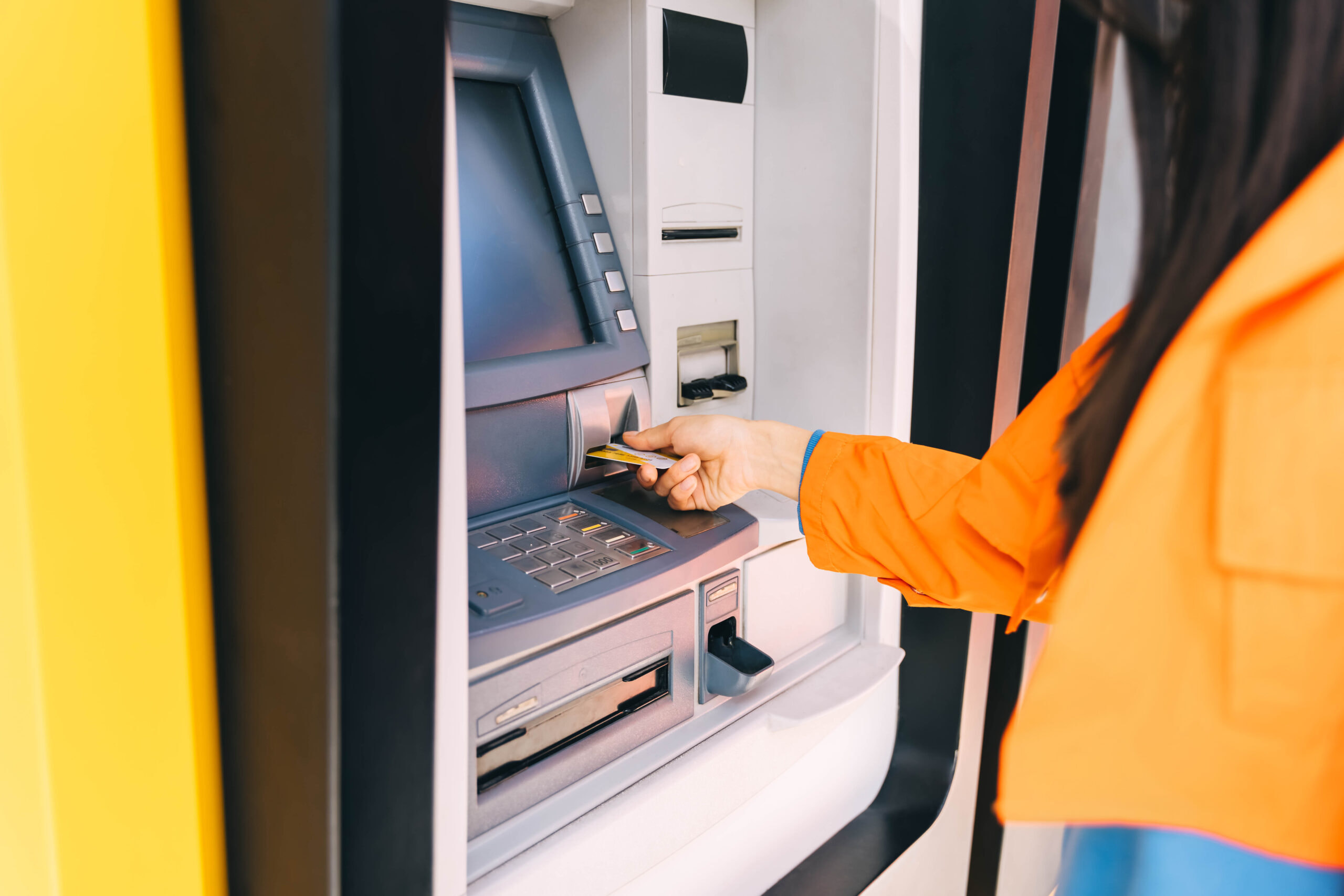While money orders are being used less in the age of digital payments, they still serve as a useful alternative to cash and personal checks. Money orders are a form of paper payment that is prepaidby the sender. The sender uses cash to purchase the money order, which makes money orders more secure than personal checks because the funds are guaranteed (with personal checks, there's a chance that the funds might not be available and the check could bounce).
Money orders are often used:
- By unbanked or underbanked consumers who need to give or receive secure payments.
- When a personal check bounces and the replacement payment must be made via secure funds.
- In international transactions, where digital transfers of funds are not easily available.
But where do you get a money order? Luckily, there are thousands of stores across the U.S. that offer money orders. Read on to learn more about national retail chains, regional retail chains, and other locations that offer money orders.
What to consider when choosing where to get your money order
First, it's important to understand what to look for in a money order provider. Here are a few things to consider:
- Fees. Different money order locations charge different amounts.
- Money order limits. Most locations limit money orders to $500 or $1,000. If you need more, you can get multiple money orders to reach your total. However, you'll pay a separate fee for each one. Some stores may also limit the number of money orders you can purchase in a single day.
- Which provider the location uses. Most locations use either MoneyGram or Western Union. They function similarly, but it's important to know which provider you're using in case you run into an issue and need to track or cancel your money order.
National retail chains that offer money orders
Whatever state you live in, you're probably not far from one of these national retail stores with money orders. However, you may want to call ahead to your local store to make sure they offer money order services, since some locations have stopped providing money orders in recent years.
Walmart
With over 4,600 box stores nationwide, Walmart is among the most affordable options for sending money orders. Simply visit the Money Services counter or a customer service desk if the location does not have a designated Money Services area.
Provider: MoneyGram
Fee: Up to $1 (varies by location, but Walmart confirms the $1 maximum)
Limit: $1,000*
CVS Pharmacy
CVS Pharmacy has over 9,100 locations in the U.S., making it a convenient location for getting money orders. They have a partnership with MoneyGram that allows you to get money orders from CVS customer service desks or check-out stands.
Provider: MoneyGram
Fee: Around $1.25*
Limit: $500*
Kroger
Kroger is a major supermarket brand that operates more than 2,700 stores across the country, under different brand names, including:
- Baker's
- City Market
- Dillons
- Food4Less
- Fred Meyer
- Fry's
- King Soopers
- Marianos
- Metro Market
- PayLess
- Ralphs
- Smith's
- Vitacost
A store loyalty card could reduce the fees on your money orders.
Provider: Western Union
Fee: Around $1.00*
Limit: $500 - $1,000 depending on the store*
7-Eleven
Get your money order and a Slurpee at your neighborhood 7-Eleven. 7-Eleven may be open later than some other stores that sell money orders, and they do accept debit cards, so you don't have to have cash on hand.
Provider: MoneyGram or Western Union (varies by location)
Fee: Typically $1 - $3*
Limit: $500*
Rite Aid
Rite Aid doesn't promote its money order services on its website, but you can get money orders at most Rite Aid locations. Call ahead to make sure your local store still offers them.
Provider: Western Union
Fee: Around $0.90 - $1.29*
Limit: $500*
Circle K
Circle K confirms that money orders are available at most of its 6,800+ U.S. locations. You can grab a money order while stopping for fuel and a Polar Pop.
Provider: MoneyGram
Fee: Around $1 - $2*
Limit: $500
Albertsons
Albertsons is a major supermarket brand with over 2,200 stores operating in 34 states across the country. Albertsons owns several popular grocery banner companies, including:
- ACME
- CARRS
- Haggen
- Jewel Osco
- Kings
- Lucky
- Pavilions
- Safeway
- Shaw's
- United
- Vons
Money order policies may vary by store brand as well as individual locations.
Provider: Western Union
Fee: Around $1.00*
Limit: $500 - $1,000 depending on the store*
Regional chains that offer money orders
In addition to the national chain stores, several regional chains provide money orders. Here's a list of money order options in different regions across the country.
Publix
Popular across the Southeast U.S., Publix is a grocery chain with over 1,400 locations scattered throughout Florida, Alabama, Georgia, the Carolinas, and Tennessee. You'll even find a few locations in Virginia and Kentucky. Just head to a customer service counter for your money orders.
Provider: Western Union
Fee: $0.85 - $1*
Limit: $500*
Piggly Wiggly
Mostly serving the South, Piggly Wiggly grocery stores also have a few locations further north (like in Wisconsin, Ohio, and West Virginia).
Provider: Western Union
Fee: Not published
Limit: $500 - $1,000*
Giant Food
Located primarily in Maryland, Delaware, Virginia, and the Washington D.C. area, Giant Food is a grocery chain with 167 local stores serving the mid-Atlantic region.
Provider: Western Union
Fee: Not published
Limit: $500 - $1,000*
Wegmans
Wegmans is a grocery chain serving parts of the Northeast, including Maryland, Pennsylvania, New Jersey, and New York, with a few locations scattered across Massachusetts, Virginia, and North Carolina as well.
Provider: Western Union
Fee: Not published
Limit: $500*
Meijer
Meijer is a Midwest supermarket chain with locations in Michigan, Illinois, Indiana, Ohio, and Kentucky. They offer competitive rates on money orders, with third parties reporting that Meijer charges just $0.70 per money order.
Provider: Western Union
Fee: Around $0.70*
Limit: Up to $500*
H-E-B
Texas-based grocery chain H-E-B offers money orders of up to $1,000 at its 160+ locations statewide. Just head to the in-store business center to get them.
Provider: Western Union
Fee: Around $1.25*
Limit: $1,000
WinCo Foods
WinCo has over 142 grocery stores across 10 states. Mostly a West Coast chain, WinCo also has a few locations in Oklahoma, Texas, Montana, Idaho, Nevada, Utah, and Arizona. This grocery chain promotes "minimal fee" money orders, but doesn't list the exact fee amount online.
Provider: Western Union
Fee: Not published
Limit: $1,000
Other common places to buy money orders
In addition to retail chains, you can get money orders from these convenient locations:
U.S. Postal Service
The U.S. Postal Service (USPS) has its own money order system that works the same way as MoneyGram and Western Union.
Current USPS money order fees are $2.35 for each money order up to $500 and $3.40 for those up to $1,000.
Banks and credit unions
Banks and credit unions typically offer money orders, and may even waive fees for premium account holders.
Check-cashing businesses
Check-cashing businesses, like ACE Cash Express, Money Mart, or Pay-O-Matic may charge higher fees than retailers, but may be convenient if you're popping in to get your check cashed anyway.
Things to know before you go
Here's what you should know before visiting a store to purchase a money order:
- Cash is preferred. Some locations may accept debit cards, but don't count on it. Credit cards are typically not accepted for money orders. When in doubt, bring cash.
- You should bring an ID. Many locations require a government-issued photo ID, especially for larger orders.
- You'll need to fill out the money order. This is a simple process once you know how to do it. Learn how to fill out a money order before you go to get one.
- Money orders may be refundable. Money orders can sometimes be refunded, but you'll probably need to pay a fee of around $15-$20 to do so. Ask your provider about their policy.
Alternatives to money orders
There may be a better solution for making secure payments than money orders. Here are a few options.
Cashier's checks
Very similar to money orders, cashier's checks are secure paper payments, typically issued by banks and credit unions by pulling the funds directly from the sender's account. The check is then guaranteed using the bank's own funds, so the recipient knows it won't bounce.
Wire transfers
Wire transfers are an electronic transfer of funds from one bank to another. The process is typically much more expensive than getting money orders, especially if the wire is going to a foreign bank account. Wire transfers are most often used when a secure transfer of a large sum is needed (like making the down payment on a home, for example).
Peer-to-peer (P2P) payment apps
P2P apps, like Venmo, PayPal, Zelle, Cash App, and Apple Pay, make it easy to digitally transfer money from one person to another. However, these methods may not be suitable for more formal financial transactions like paying bills.
Prepaid debit cards
Prepaid debit cards allow you to load funds directly to your card without linking the card to a bank account. Once you load funds, you can use the card like a debit card, easily shopping in stores and online. Prepaid debit cards combine the security of money orders (since the funds are pre-loaded) with the added convenience of paying by card instead of paper.
Find money order locations near you
Now that you know where to get money orders, you can find a convenient location near you. If you're not sure where your nearest store chain, bank, or check-cashing business that offers money orders is located, you can check the Western Union and MoneyGram websites for locations near you. Each of those websites lists all locations that offer their products, so you can quickly get your money orders.



